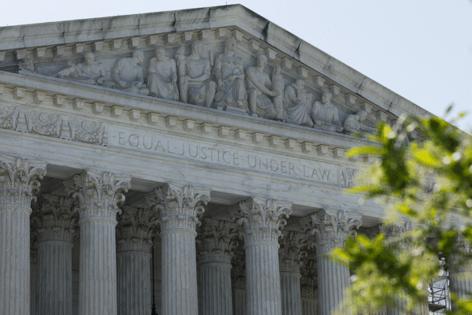Editorial: Who's the sovereign?
Published in Op Eds
Constitutional protections don’t mean much if federal officials can violate them without facing consequences.
This fall, the U.S. Supreme Court will hear arguments in United States Postal Service v. Konan. The immediate dispute involves an individual’s attempt to hold the post office liable for the malfeasance of its employees. Lebene Konan owned two rental properties in Texas, which she leased to individual tenants. One of the properties had a locking mailbox. Konan had the key to the mailbox and would distribute mail to her tenants. She also received business mail.
She claims that a USPS employee changed the lock on her mailbox without her permission in 2020. She sought an explanation from the post office. Instead of helping her, she contends USPS refused to deliver mail to that address until its ownership was established conclusively. Even after that happened, she claims that two USPS employees refused to leave mail there, marking it as undeliverable. Konan, who is Black, alleges that these actions were motivated by racial bias.
The Federal Tort Claims Act is a law that allows citizens to seek relief when government employees harm them. This would seem like an obvious example if a court finds that Konan’s version of events is true.
She sued, but a District Court dismissed her case “because it was barred by sovereign immunity based on the postal-matter exception” under the law, as the Fifth Circuit Court of Appeals explained in its decision. The law does contain exceptions, but “we hold that the terms ‘loss,’ ‘miscarriage,’ and ‘negligent transmission’ do not encompass the intentional act of not delivering the mail at all,” the Fifth Circuit ruled.
You can see that the principle here reaches far beyond one property owner in Texas. It is about whether federal officials can exempt themselves from accountability for intentional abuses. That’s why the Institute for Justice recently filed an amicus brief in this case. It contains several examples of federal officials blatantly violating people’s rights. They should be allowed to have their day in court.
“Constitutional guarantees mean little if the government can break them without consequences,” Institute for Justice Senior Attorney Anya Bidwell said. “That’s why, since the country’s founding, federal officials could be sued for violating people’s rights. It is imperative we hold on to these sacred principles under current circumstances.”
In October, the court will hear Konan’s case. It should remind federal officials that individuals who’ve been harmed by the intentional actions of governmental employees deserve their day in court.
_____
©2025 Las Vegas Review-Journal. Visit reviewjournal.com.. Distributed by Tribune Content Agency, LLC.
























































Comments